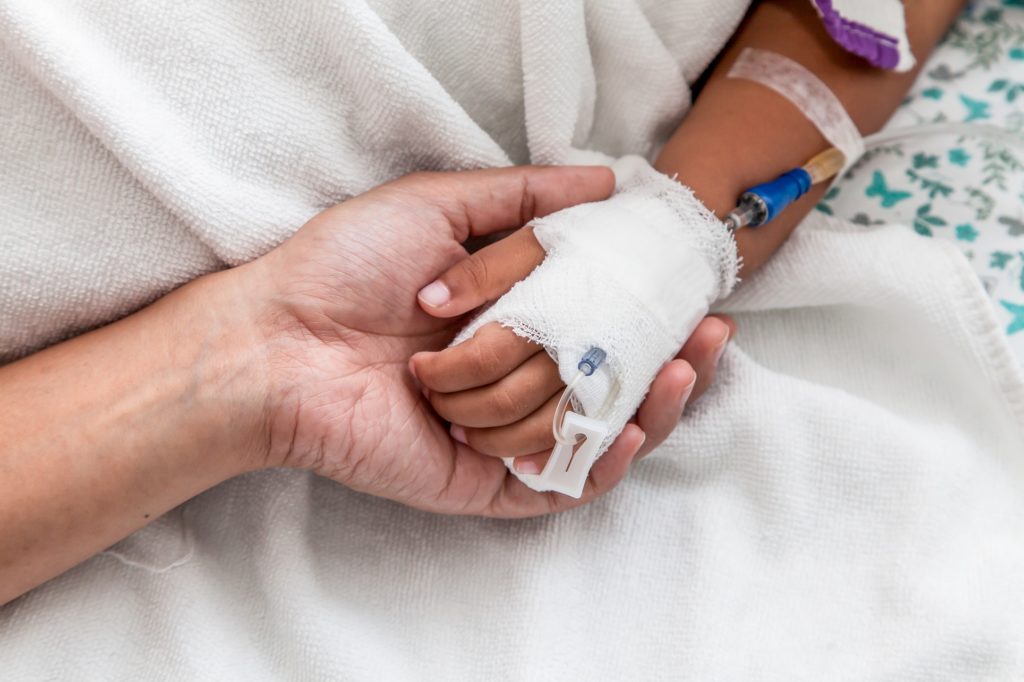[ad_1]
Meningitis: preschool child with meningococcal meningitis
In Dresden, a small child suffers from contagious meningococcal meningitis (meningitis). The disease can be deadly. People who have had contact with the kindergarten child are treated with antibiotics.
Contact persons are treated preventively with antibiotics
In Dresden, a child in a nursery suffers from contagious meningococcal meningitis. According to one statement, the health department received a proof on Friday, quickly identifying the approximately 110 contact persons at the child care center as well as personal contacts. "Preventive antibiotics have been prescribed to eligible children and adults," said Jens Heimann, MD, head of the Dresden Department of Health. "The sooner we intervene in this disease, the more likely it is that it will not declare itself and will not be transmitted to the contacts."

Transmission by droplet infection
Meningococci are bacteria that settle in the nasopharyngeal space of man and, according to the Robert Koch Institute (RKI), are detectable in about ten percent of the population without any sign of clinical symptoms.
They are transmitted by direct and close contact by droplet or salivary infection. The bacteria are released into the air when you talk, cough or sneeze into small droplets from the nasopharynx and can be inhaled a short distance away.
In addition, pathogens can be transmitted even in close contact with patients in the form of smear infection, for example by touching nasal secretion. Outside the body, the bacteria die quickly.
Different courses
According to health experts, two forms of meningococcal disease can occur individually or together:
Meningococcal infections are meningitis in about two thirds of cases. In about a third of cases, the course is characterized by sepsis ", writes the RKI on its website.
The onset of the disease is usually very sudden and progresses rapidly.
Mortal course possible
Symptoms such as headache, stiff neck, or nausea can occur during an infection between two and ten days after the infection.
Fever, photosensitivity, chills and a confused state of consciousness, such as heavy drowsiness or dizziness, are other symptoms of meningitis.
Bacterial meningitis can lead to severe disability or death over a short period of time.
The disease is contagious before it declares itself
"With this disease, unfortunately, it is already contagious, even before it's declared," said the head of the Dresden Department of Health, Jens Heimann.
But: "24 hours after the start of effective antibiotic therapy, patients are no longer contagious," writes the Federal Center for Health Education (BZgA) on its portal "Infektionsschutz.de".
According to health experts, patients must immediately go to the hospital if they suspect a meningococcal infection.
Very rare disease
According to the BZgA, meningococcal disease is rare in Germany: about four cases per million people a year. Most of them are isolated cases, especially in autumn and winter.
There are different types of meningococci. In Germany, serogroups B and C are the most common.
In recent years, a vaccine against the deadly disease is available. (Ad)
Source link